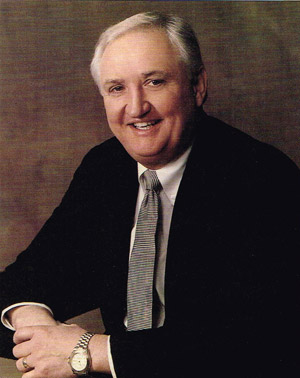By Sarah Brenner, JD
Director of Retirement Education
Follow Us on Twitter: @theslottreport
June is Pride Month. While celebrating, same-sex couples may want to take this opportunity to consider plans for their retirement accounts. Since the SECURE Act and SECURE 2.0 have overhauled the rules, it may be time for a new strategy. Here are 5 retirement account planning tips for same-sex couples.
1. Marriage Has Its Benefits. If you are not working, you may think you are ineligible to make an IRA contribution. That might not be the case. If you are married, you may be able to contribute to your IRA based on your spouse’s taxable compensation for the year. An individual could make spousal IRA contributions in some years and regular IRA contributions in others.
To make a spousal contribution for 2023, you must be legally married on December 31, 2023, and file a joint federal income tax return for 2023. For same-sex couples, this would not include civil unions. If you are divorced or legally separated as of that date, neither is eligible for a spousal contribution, even if they were married earlier in the year.
When you reach age 73, you must start taking annual distributions, called required minimum distributions (RMDs). These are calculated by using life expectancy tables provided by the IRS. IRA spouse beneficiaries who are more than ten years younger than the IRA owner may use the Joint Life Expectancy Table. This results in smaller RMDs versus using the Uniform Lifetime Table, which is required to be used to calculate lifetime RMDs for all other IRA owners.
2. Spouse Beneficiaries Get Special Breaks. Only a spouse beneficiary can roll over or transfer an inherited IRA from her deceased spouse into her own IRA. This is known as a spousal rollover. There is no deadline for a spousal rollover. Once the spousal rollover is done, the funds are treated like any other IRA funds you own. There are no RMDs if you are not yet age 73. Non-spouse beneficiaries do not have this rollover option.
Not every spouse beneficiary will want to do a spousal rollover. Sometimes, to avoid early distribution penalties, it can make more sense to keep an inherited IRA. Under the SECURE Act, most beneficiaries will need to empty an inherited IRA by December 31 of the tenth year following the year of death. However, eligible designated beneficiaries (EDBs) will still be able to take RMDs from the inherited IRA based on their own life expectancy. A spouse is one of those EDBs.
As a spouse beneficiary you can take advantage of a special rule unavailable to non-spouse beneficiaries. If you are the sole beneficiary, and if your spouse dies before their required beginning date, you can delay RMDs from the inherited IRA until the year your spouse would have attained age 73. That can mean a delay of many years before RMDs from the inherited IRA must begin.
Even when spouse beneficiaries are subject to RMDs, they receive a special break when calculating that amount. Spouse beneficiaries have the advantage of being able to recalculate their life expectancy. Over time, this results in lower RMDs for spouse EDBs compared to non-spouse EDBs.
3. Still Stretching Inherited IRAs. Not all same-sex couples are married. Many have not tied the knot. Those in civil unions will not be considered married under federal tax law. Leaving a retirement account to a partner who is not a spouse means they will be treated like any other non-spouse beneficiary.
Under the SECURE Act, most non-spouse beneficiaries will be subject to the 10-year payout rule. However, there is a special exception for EDBs, who are still able to stretch payments from an inherited IRA over their own single life expectancy. One category of EDBs is “beneficiaries who are not more than 10 years younger than the retirement account owner.” If same-sex partners are close in age, they can leverage this rule to access the stretch for inherited retirement accounts.
4. Watch Out for State Law. While same-sex couples are considered legally married under federal law, state laws can pose some challenges when it comes to retirement account planning. For example, under the SECURE Act, a minor beneficiary of an account owner can still stretch distributions from a retirement account until age 21. This rule is strictly limited to children of the account owner, so this could pose problems if a child is not either biological or legally adopted by the deceased account owner. Same-sex couples may face more issues with these requirements.
5. Good Advice is Essential. In the wake of the Supreme Court’s decisions over the past decade, millions of same-sex couples headed to the alter. Many of these newlyweds, never expecting to see a day when they would be allowed to marry, may not have paid much attention to the special breaks that married couples receive under the tax code when it comes to retirement accounts.
Same-sex couples that have not married also may be seeking more information as to how the complex rules, both federal and state, work for their accounts. Good advice is essential. To find a knowledgeable financial advisor, please visit https://www.irahelp.com/find-an-advisor
https://www.irahelp.com/slottreport/pride-month-5-retirement-account-planning-tips-same-sex-couples


